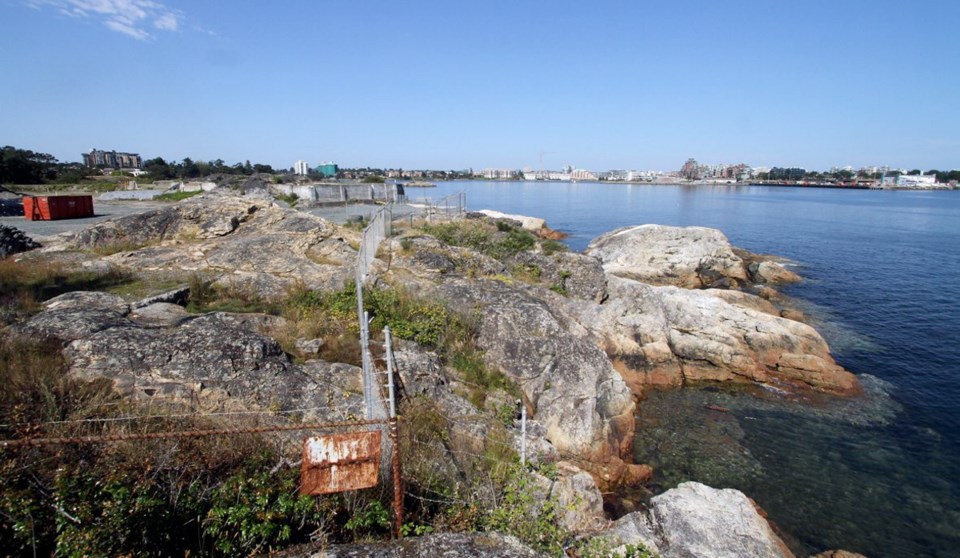A tentative deal for a sewage treatment plant in Esquimalt fell apart Wednesday as Greater Victoria politicians refused to endorse a plan to barge construction materials to McLoughlin Point.
The unknown costs of building a dock and running barges to and from the site raised alarm bells for almost everyone on the Capital Regional District’s sewage committee, except Esquimalt Mayor Barb Desjardins.
The politicians refused to support the idea, and after much debate punted the entire issue to a future meeting while staff gather more information.
In addition to barging, the proposed rezoning deal between Esquimalt and CRD staff called for $55,000 a year for at least five years to compensate hosting the unpopular sewage plant, as well as a million-dollar bike and path system on Lyall Street, public art, an oceanside walkway, road upgrades and possible Esquimalt ownership of a sewage heat system.
The zoning dispute is one of the last hurdles before contracts are signed and construction begins on the sewage treatment megaproject, including the plant at McLoughlin Point and a sludge facility at Hartland Landfill.
CRD staff told politicians they couldn’t estimate the cost of barging materials to and from McLoughlin Point, but could ask the three short-listed companies preparing bids on the plant to include the cost in final proposals next year.
The entire project has a budget of $783 million.
Several directors expressed concern that agreeing to barges before knowing costs could leave taxpayers on the hook for millions.
“Once prices do come in, we have no control over it,” said Saanich Coun. Leif Wergeland.
Saanich Coun. Vicki Sanders, whose husband spent 40 years working for marine barging company Seaspan, said costs would likely be in excess of $12,000 a day for barging, and service could be disrupted by weather and wind.
Victoria Coun. Geoff Young said the region should decide a “reasonable upper limit” for barging costs and compare it to simply giving Esquimalt cash compensation.
“We’re not trying to figure out how much it will cost to barge, we’re trying to figure out how much it would be worth to Esquimalt to put up with the vehicles,” Young said.
The rezoning proposal was further complicated by Esquimalt’s insistence on new setbacks for the oceanfront plant, which it said needs to be built farther away from the high water mark and property lines.
Two of the three short-listed bidders can’t comply with those new distances, said project director Albert Sweetnam.
If the two sides can’t agree on rezoning, they will have to appeal to Environment Minister Mary Polak to dictate a solution — something she has so far refused to do.
That could work to the CRD’s advantage, said Victoria Coun. Ben Isitt. “There is the club of the minister of environment hanging over these negotiations,” Isitt said. “So there’s an incentive for Esquimalt council and staff to give a little.”
Esquimalt residents are clear that they don’t want construction trucks travelling through town, Desjardins said. The setbacks are necessary to preserve public access to the shoreline and prevent tsunami damage, she said.
Desjardins said she would be interested to see cost estimates on barging, but her community’s needs are clear and it’s up to the CRD to meet them.
“By taking away barging, taking it off the table, that may be … a deal breaker,” she said.
“But I’m not the one who has to sell this thing.”



